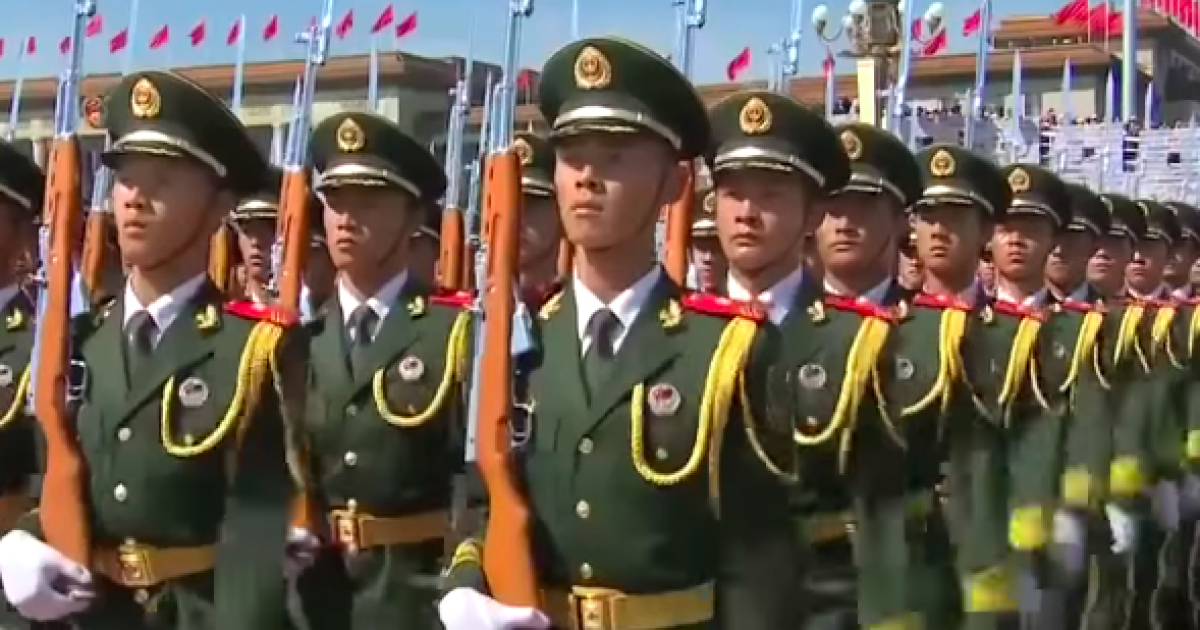
Relations between China and the U.S. have been deteriorating over the past decade or so.
The Trump administration had rational policies on the trade front in order to recalibrate trade policies that benefit American workers and constructively point out certain flaws in the present set of trade policies it has with the East Asian country.
However, both Republicans and Democrats made a stink about China’s human rights violations and focused on increasing the U.S. military presence in the region as opposed to focusing on nationalist concerns — immigration and trade — that sought to balance relations with China in a non-bellicose manner that lies in contrast to neoliberal and neoconservative methods of handling international affairs.
With Joe Biden at the helm, this breakdown in relations with China is set to continue. The US-China talks that took place on March 18-March 19 further demonstrated this. The talks were marked by a heated exchange between Yang Jiechi, a leading diplomat in the Politburo, and US Secretary of State Tony Blinken. According to MK Bhadrakumar of the Asia Times,Yang brought “into focus America’s ‘condescending’ approach to the talks; the fallacy of the US rhetoric on human rights; Black Lives Matter and deep-seated problems of American racism; the social and economic inequality in America and so on.”
Yang continued unloading on the U.S. during the exchange:
I don’t think the overwhelming majority of countries in the world would recognize the universal values advocated by the United States, or that the opinions of the United States could represent international public opinion. And those countries would not recognize that the rules made by a small number of people would serve as the basis for the international order.
Undoubtedly, Yang represents the sentiments of a much more emboldened China that is not ready to be pushed around and lectured to. The “century of humiliation” it’s felt since the Opium Wars up until the triumph of the Chinese Communist Party in 1949 during the Chinese Civil War has formed the basis of China’s way of handling international affairs. It wants to avoid getting pushed around by external actors.
China is clearly indicating that it will not fold to the US and will respond assertively to perceived violations from the US against Chinese interests. Despite the talk about a new Cold War with China, there’s reason to believe that it will play out differently. David Sanger of The New York Times argues that US competition will “bear little resemblance” to the previous Cold War with the Soviet Union due to how the present confrontation with China will be centered on cyber-conflict, influence operations, and technology.
Sanger argues that China’s “pathway to power is building new networks rather than disrupting old ones … Their power arises not from their relatively small nuclear arsenal or their expanding stockpile of conventional weapons. Instead, it arises from their expanding economic might and how they use technology.”
Some figures like Robert Gates, who served as the director of Central Intelligence Agency and Secretary of Defense, argue that America’s problems are more internal:
If we can’t figure out a way to tackle the big problems facing this country, whether it is infrastructure or immigration or education or a host of others, then I think we are in deep trouble, and that is much more of a danger to the country than any foreign threat, far more than Russia or China. And the question is whether we can get past that.
Gates continued noting how America’s problems tend to be domestic in nature:
I like to say that the biggest threat is confined to the two square miles that encompass the White House and the Capitol building, and if the president can’t figure out a way, and if the congressional leaders won’t figure out a way to respond, in terms of working together … then I think that the divisiveness that we have seen, and the dangerous divisiveness that we have seen probably will only get worse.
Furthermore, the way China is competing with the US is unique. For example, China was able to spearhead the implementation of the The Regional Comprehensive Economic Partnership — a trade agreement that is made up of Australia, Japan, New Zealand, and South Korea, effectively created a vast trade zone. China is also tapping into its vast diaspora to develop export markets and project its economic power. In a similar vein, the CCP is taking advantage of Chinese diasporas to potentially build fifth columns in foreign countries. In sum, China is getting clever with its competitive behavior.
How should America respond to China? America should have a balanced policy where it does not interfere in China’s internal affairs or sphere of influence, while China stays out of the U.S.’s backyard in the Western Hemisphere as far as military matters are concerned. Policymakers should also make sure to recalibrate trade with China, and try to bring jobs back home or at least nearshore them to countries in the Western Hemisphere. As for immigration, the U.S. should restrict all immigration — legal and illegal — which could deny China the ability to build human intelligence networks and prevent their intelligence assets from committing mass espionage and theft of trade secrets.
All in all, the U.S. should take a nationalist approach to China that stresses military restraint, but draws red lines in the Western Hemisphere, immigration, and trade deals.



